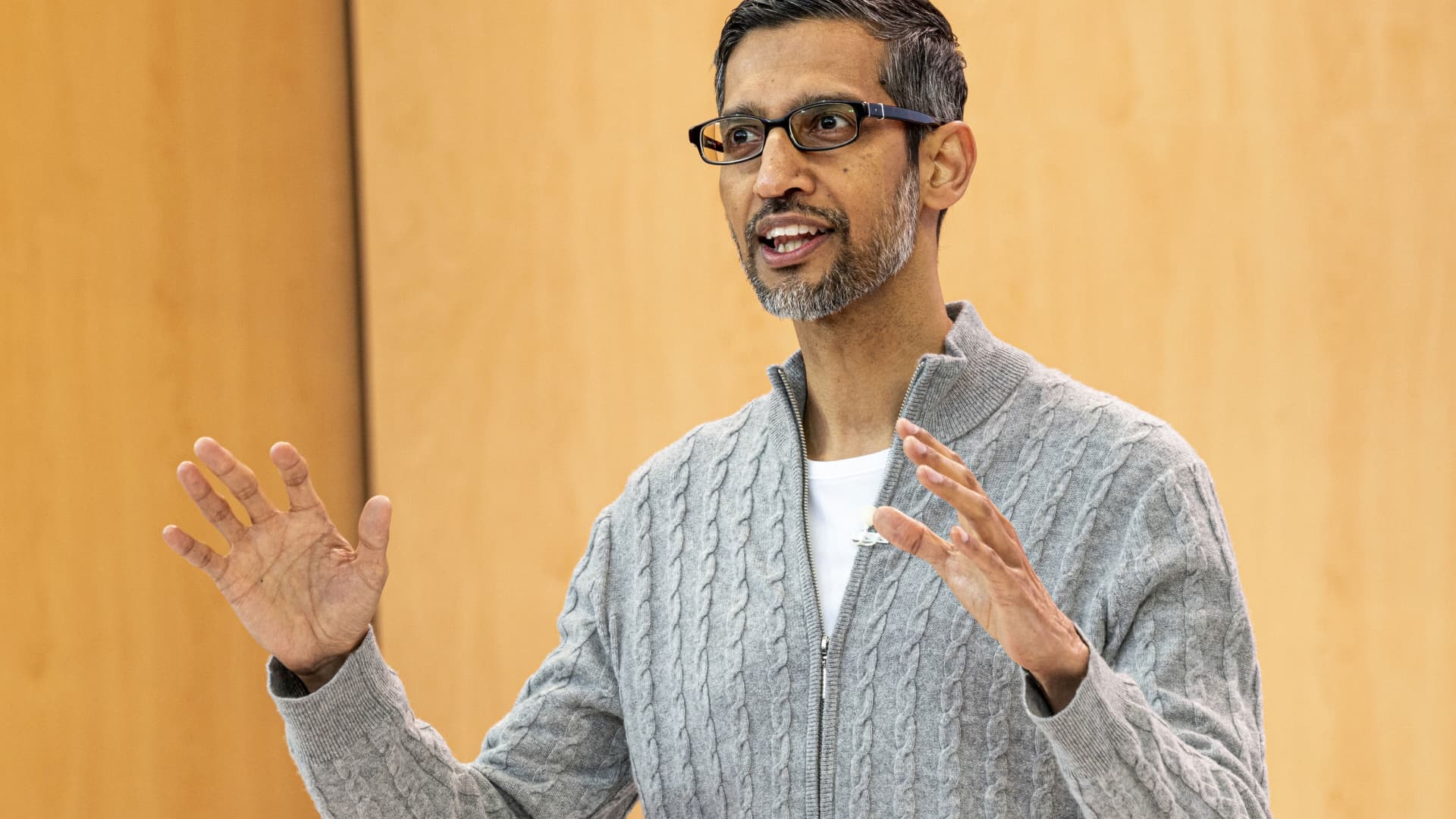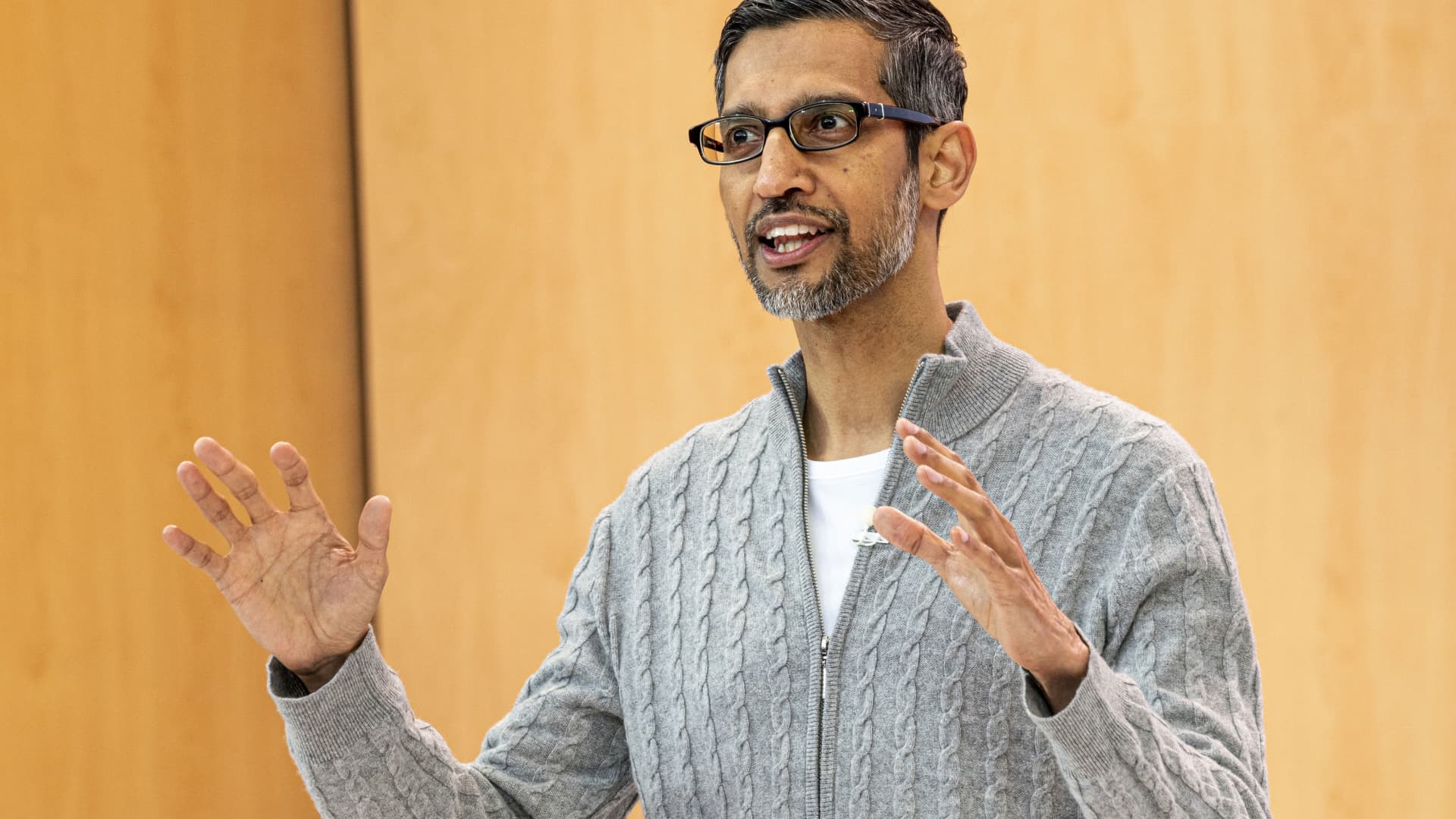The AI Imperative: Google’s Push for an AI-Savvy Workforce
Introduction
The rapid advancement of artificial intelligence (AI) is reshaping industries, redefining job roles, and demanding a new level of digital literacy from employees. Google, a company synonymous with innovation, is at the forefront of this transformation. Recent initiatives within the tech giant underscore a strategic shift towards fostering an AI-savvy workforce. This push is not merely about adopting new technology; it’s about reimagining how work gets done, how decisions are made, and how employees can thrive in an AI-augmented world. The imperative for AI proficiency is driven by the need for efficiency, competitive advantage, and the ethical integration of AI into business operations.
The Drive for Efficiency and Cost Reduction
Automating Routine Tasks
One of the most immediate benefits of AI integration is the automation of routine tasks. AI excels at handling repetitive, data-driven processes that traditionally consume significant time and resources. For instance, AI-powered tools can manage customer service inquiries, generate detailed reports, and even draft initial versions of documents. By automating these tasks, Google employees can redirect their focus towards more complex and creative problem-solving. This shift not only enhances productivity but also allows for a more engaging and fulfilling work environment, as employees are freed from mundane tasks to concentrate on strategic initiatives.
Improving Decision-Making
AI’s ability to process and analyze vast amounts of data in real-time provides a significant advantage in decision-making. Traditional methods of data analysis often involve manual processes that are time-consuming and prone to human error. AI algorithms, on the other hand, can identify patterns, trends, and anomalies within large datasets with remarkable accuracy. This capability is invaluable across various departments, from product development to marketing. For example, AI can analyze user behavior to predict market trends, enabling Google to make data-driven decisions that align with customer needs and preferences. This predictive power ensures that Google remains agile and responsive in a rapidly evolving market.
Accelerating Innovation
Innovation is the lifeblood of any tech company, and AI is proving to be a powerful catalyst in this regard. AI-driven tools can assist in generating new ideas, testing hypotheses, and optimizing designs. For instance, AI can help engineers develop more efficient code by identifying potential improvements and suggesting optimizations. In marketing, AI can create personalized campaigns by analyzing customer data and tailoring content to individual preferences. This level of customization enhances customer engagement and drives better business outcomes. By leveraging AI, Google can accelerate its innovation cycles, bringing new products and services to market faster and more efficiently.
Addressing Competitive Pressures
Keeping Pace with Innovation
The tech industry is characterized by rapid innovation, and companies that fail to keep pace risk falling behind. Google’s push for an AI-savvy workforce is a proactive measure to ensure that its employees are equipped with the latest AI tools and knowledge. This commitment to continuous learning and development enables Google to stay ahead of the curve, fostering a culture of innovation and adaptability. By investing in AI training and development, Google ensures that its workforce is not only proficient in current AI technologies but also prepared to embrace future advancements.
Attracting and Retaining Talent
In the competitive landscape of the tech industry, attracting and retaining top talent is crucial. Google’s emphasis on AI proficiency sends a strong signal to potential employees that the company is committed to staying at the forefront of technological innovation. This commitment makes Google an attractive employer for AI professionals, who are in high demand across the industry. By offering comprehensive AI training and development programs, Google not only enhances the skills of its current employees but also positions itself as a leader in the AI space, drawing in top talent from around the world.
Responding to Market Demands
The market for AI-powered products and services is growing rapidly, driven by increasing consumer demand for personalized and efficient solutions. Google’s focus on AI proficiency ensures that its employees are well-equipped to develop innovative products that meet these evolving needs. For example, AI can enhance search algorithms to provide more accurate and relevant results, improve the functionality of Google Assistant, and create more engaging advertising experiences. By leveraging AI, Google can deliver products and services that not only meet but exceed customer expectations, solidifying its position as a market leader.
The Human Element: AI Augmentation, Not Replacement
AI as a Tool
Google’s approach to AI integration emphasizes augmentation rather than replacement. The goal is to empower employees with AI tools that enhance their productivity and creativity. AI is not seen as a threat to jobs but as a powerful ally that can help employees achieve more in less time. For instance, AI-powered tools can assist in data analysis, freeing up employees to focus on interpreting the results and making strategic decisions. This collaborative approach ensures that AI is used to complement human capabilities, rather than replace them.
Focus on Higher-Level Tasks
By automating routine tasks, AI allows employees to concentrate on higher-level activities that require critical thinking, creativity, and strategic planning. These are areas where humans excel and where AI’s capabilities are limited. For example, AI can generate initial drafts of content, but it is the human touch that refines and personalizes the message. Similarly, AI can analyze data to identify trends, but it is the human analyst who interprets the data and develops actionable insights. This division of labor ensures that employees are engaged in meaningful work that leverages their unique skills and abilities.
Continuous Learning
Google’s commitment to continuous learning is a cornerstone of its AI strategy. The tech landscape is evolving rapidly, and employees must stay updated with the latest AI tools and techniques. Google provides a range of training programs and resources to support this ongoing education. By fostering a culture of continuous learning, Google ensures that its employees are not only proficient in current AI technologies but also prepared to adapt to future advancements. This commitment to lifelong learning is essential for maintaining a competitive edge in the dynamic tech industry.
Navigating the Challenges
AI Talent Gap
The demand for AI professionals far exceeds the supply, creating a significant talent gap in the industry. Google addresses this challenge by investing in internal training programs and partnering with academic institutions to develop AI talent. These initiatives not only help to bridge the skills gap but also ensure that Google has a steady pipeline of qualified AI professionals. By fostering a culture of continuous learning and development, Google can attract and retain top talent, positioning itself as a leader in the AI space.
Data Privacy and Security
AI algorithms rely on large datasets, raising concerns about data privacy and security. Google is committed to protecting user data and adhering to strict privacy regulations. The company invests in advanced security measures and employs data anonymization techniques to mitigate risks. By prioritizing data privacy and security, Google can build trust with its users and ensure that its AI initiatives are conducted responsibly and ethically.
Ethical Considerations
AI raises important ethical questions about bias, fairness, and accountability. Google is committed to developing AI responsibly and ensuring that its AI systems are fair, transparent, and accountable. The company has established ethical guidelines and review processes to address these concerns. By prioritizing ethical considerations, Google can build trust with its users and stakeholders, ensuring that its AI initiatives are conducted in a manner that aligns with its values and principles.
Gartner’s Perspective on AI Readiness
Gartner’s research highlights the importance of AI readiness among leadership teams. A recent Gartner survey revealed that only 44% of CIOs are deemed “AI-savvy” by their CEOs. This finding underscores the need for companies to invest in AI training and development for executives and employees alike. Executive buy-in is crucial for the success of AI initiatives, as it ensures that the necessary resources and support are in place. By fostering a culture of continuous learning and development, companies can bridge the skills gap and position themselves for long-term success in the AI era.
The Road Ahead: A Pivotal Year
Google views the upcoming year as pivotal, especially regarding AI. This perspective reflects the growing importance of AI in shaping the future of technology and business. Google is likely to continue making strategic investments in AI research, development, and talent acquisition to maintain its competitive edge. The company will also focus on developing new AI-powered products and services that address evolving customer needs and market demands. Additionally, Google may seek to strengthen its partnerships and collaborations with other companies and research institutions to accelerate AI innovation. By embracing AI and empowering its workforce, Google is positioning itself for long-term success in the AI era.
Conclusion: Embracing the AI Revolution
Google’s push for an AI-savvy workforce is a testament to the transformative power of artificial intelligence. By prioritizing AI skills, fostering a culture of continuous learning, and addressing the challenges associated with AI adoption, Google is positioning itself to lead the AI revolution. As AI continues to evolve, companies that embrace it strategically and empower their employees will be best positioned to thrive in the future. This isn’t just about keeping up; it’s about shaping the future of work and innovation. The journey towards an AI-augmented workforce is not without its challenges, but with a clear vision, strategic investments, and a commitment to ethical practices, Google is poised to navigate this transformative era successfully. The AI revolution is here, and those who embrace it will not only survive but thrive in the new digital landscape.












